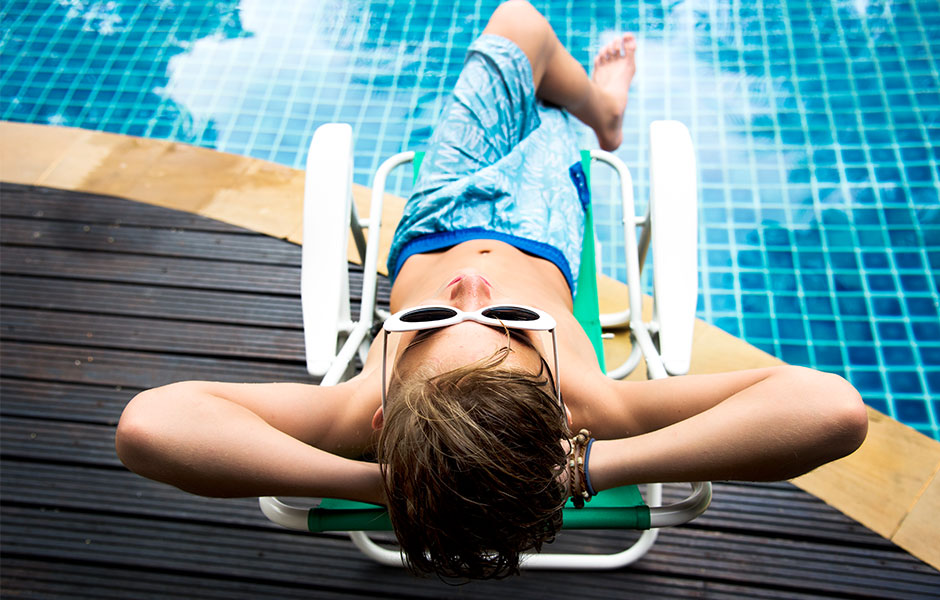Do we know how to protect our skin? To answer the question, Ana Filipa Duarte, a CINTESIS researcher and doctoral student at the Faculty of Medicine of the University of Porto (FMUP), has developed several studies whose objective was to evaluate the knowledge that the Portuguese population has regarding sun exposure. Given that inadequate sun exposure behavior is one of the main reasons for the development of skin cancer, the study involved several groups that deal with the sun in specific contexts.
After evaluating sun exposure habits of individuals attending the beach, the researcher concluded that more than half of the respondents arrive at the bathing area at the least recommended hours for sun exposure. From this sample, the group of people with ages between 16 and 40 is the one that disrespects the most the safe hours. By questioning the same population about the use of solariums, it was concluded that people who do not have the proper care in a bathing environment are also those who resort the most to solariums. It should be noted, however, that although in Portugal the use of this service is significant – especially among young women – the demand is below to what is observed in other European countries.

Photo: Egídio Santos/U.Porto (DR)
With the objective of understanding what kind of skin care is adopted among children, the researchers analyzed the behaviors of children between the ages of 7 and 11. Although 64% of children use a hat to protect themselves from the sun, it was possible to conclude that the use of sunscreen is less than desirable – only 15% of children use skin protection when they are in school and 37% when they are at the beach. Despite the lack of protection in some settings, and even though 85% of children have adequate knowledge about sun protection, more than half (64%) mistakenly think that sunscreen protects better than clothing or shade.
Athletes who practice outdoor sports are another group most susceptible to sun exposure. By analyzing survey data from outdoor joggers, it was concluded that 75% of the respondents do not adopt a safe behavior. The scenario is nonetheless more positive among people who train more than 4 hours per week. Women, despite being more careful than men when it comes to using sunscreen, are not so careful about the recommended times for sun exposure.
This research line has other additional ongoing evaluation studies that will allow to assess the best form of intervention among the population and, thus, to direct prevention campaigns, improving their effectiveness. The epidemiological data as well as the costs associated with the treatment of skin cancer in Portugal are also being investigated.
The research work conducted by Ana Filipa Duarte was coordinated by Osvaldo Correia and Altamiro da Costa Pereira, professors at the Faculty of Medicine of the University of Porto, and researchers at CINTESIS, under the Doctoral Program in Clinical Research and Health Services of FMUP – PDICSS.
Content CINTESIS/FMUP

